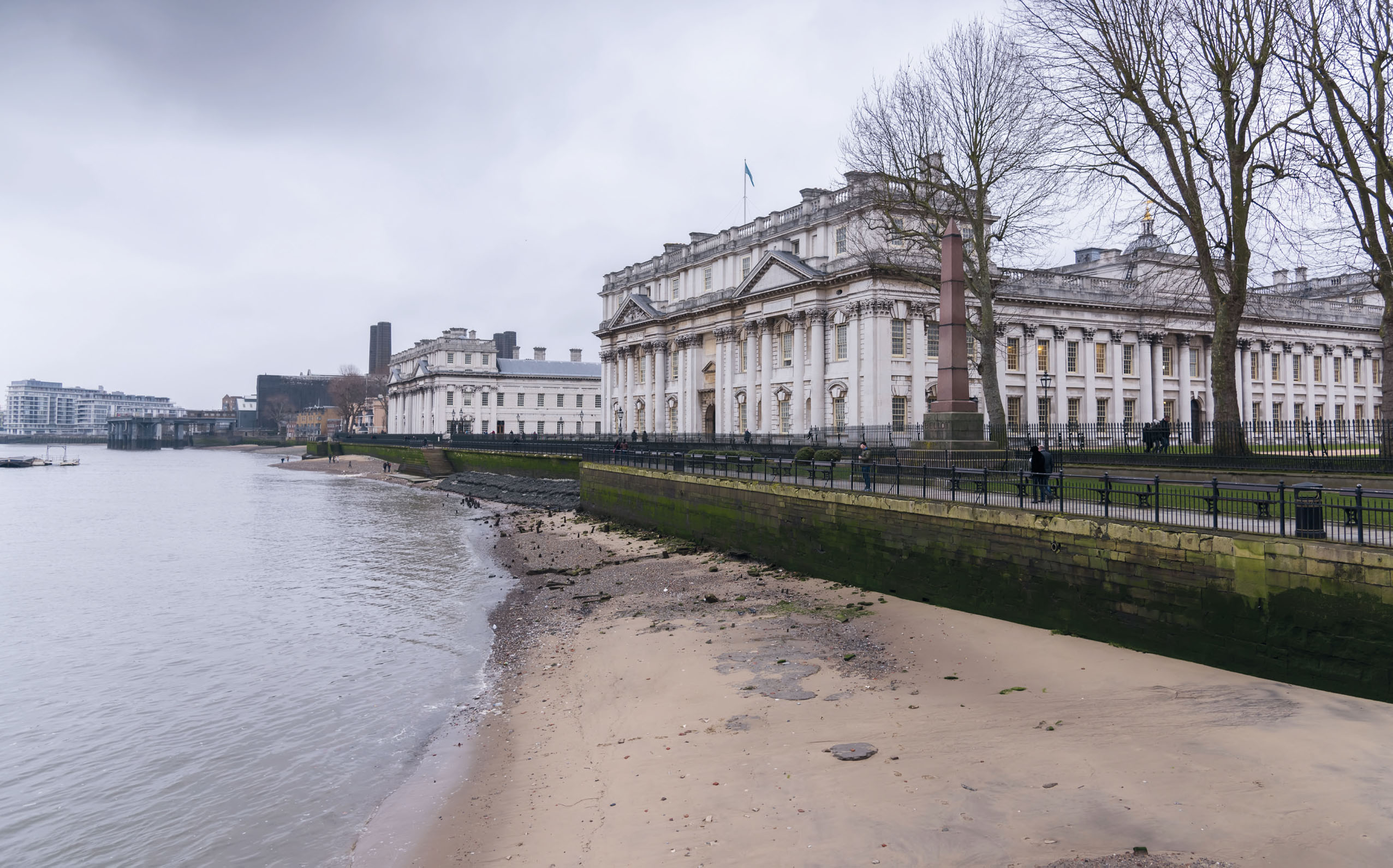
It would be fair to say that music conservatoires in the UK have not always been considered specialist training centres for careers in music education. It is also fair to say that Trinity Laban Conservatoire of Music and Dance has often done things a little differently from its London competitors.
Trinity Laban's senior staff are always keen to emphasise that they value elite performance as much as the next conservatoire, but are equally enthusiastic about taking ownership of their institution's unique identity. When it comes to preparing students for careers in music education, Trinity Laban certainly puts its money where its mouth is. For starters, it's the only conservatoire that has a formal Department for Education, itself something of a statement of intent. The Department's head, Tim Palmer, tells me, against a bracing Greenwich wind, that the conservatoire wants to shape the narrative in music education.
‘It's about professionalisation’, he explains. ‘The current government rhetoric about teaching in general is that it's not a profession, it's an activity. Hence, anyone can teach as long as they observe someone else doing it and they have the subject knowledge.
‘In this sense, music education suffers to a greater extent again, because most instrumental teaching is not regarded as a profession either, but rather as an activity that you do alongside the stuff you really want to do. That is the way lots of performance training has gone on. As a result, vast numbers of conservatoire students end up moving into music education, particularly as instrumental teachers, but feel as though they haven't been properly trained, cannot access training, don't know the codified practices, and that the only formal framework around them is the graded examination system. The whole idea of professionalising an activity that the overwhelming majority of conservatoire students are going to end up doing is a complex one, but it is something we are meeting head on.’

Trinity Laban, based at the Royal Naval College, Greenwich
A breadth of programmes
Trinity Laban offers an impressive range of education programmes, including an MA in Music Education and Performance, its ‘The Teaching Musician’ postgraduate programme and international teacher training partnerships. There are also electives in instrumental and vocal teaching on its undergraduate performance degree, as well as ‘creative leadership’, which sees undergraduates leading projects in schools around south London. But it's not just about the students.
‘We are enthusiastic about performance staff also,’ says Palmer. ‘We might have staff here who are principals of orchestras, or members of renowned string quartets, but who have no pedagogy training. They have great reputations and they teach very well, but we as an institution will work with them towards professionalising their practice in some way. My core motivation is about professionalisation, and this is something that runs right through the institution, for those who work and study within it.’
This mission appeals to a range of demographics at different stages of their lives, particularly at postgraduate level. ‘The Teaching Musician’ programme includes an option to pursue a full MA qualification and caters for mostly UK-based professionals who have been teaching for a couple of years. Students on the programme are engaged through a blend of online and ‘on campus’ learning.
‘We have 41 on this course at the moment, which makes us the biggest postgraduate music education community in the UK. We really are the hub of accredited UK professional development within music education,’ says Palmer.
What opportunities for development can professionals who embark upon the programme access? ‘All the students will already have an established practice, and we have instrumental teachers, primary school music specialists, some secondary school classroom teachers and community musicians,’ says Palmer. ‘They will already know their work, but we will provide them with guidance to refine and improve. This might be, for example, on improvisatory skills, using the voice in composition, leading through gesture, or conceptualising notation as part of the music-learning experience. The academic content is very broad, covering instrumental, community and classroom practices.
‘People generally do the course because they either want to change what they are doing and go on to something else, or they feel the desire to better understand and improve what they already do. The course gives them the tools to achieve these objectives.’
Combining performance and teaching
The MA in Music Education and Performance offers something a little different, with students able to access music pedagogy alongside intensive principal study tuition. Jan Guthrie is currently a student on the programme.
‘I went straight into secondary music teaching from university, but was becoming a little frustrated about the lack of time I had to improve my performance skills, particularly as an accompanist, which I was doing a lot of in school,’ he explains. ‘Here, I get focused development on aspects of teaching in the classroom, community and on an instrument, but also tuition to improve my performance skills. It's allowed me to explore music education beyond the classroom.
‘I was placed recently in a voluntary choir, which really opened my eyes and taught me about music-making for Key Stage 2 children from diverse backgrounds, for whom this was their principal opportunity to access music. It really taught me about how to engage them and the benefits of music-making in their lives, which was totally different from anything I had encountered before.’
The course attracts many international students. Current student Laura Gorden came from the USA. ‘I have always been interested in teaching music in American international schools,’ she explains. ‘Many of them are in Europe and this was the only course that allowed me to focus on both my education and performance interests.’
How has she found the experience so far? ‘I learned more in the first term about the practice of education than I could have imagined,’ she says. ‘Whether it's working on how to plan and deliver an educational workshop, prepare for a solo recital, discover various pedagogical approaches to teaching music – it has been really diverse.’
I wonder if students on this MA see themselves in a different way from those on a performance-only course? ‘They conceptualise themselves differently because they are engaged in the professionalisation of an area they want to go into, as opposed to students on a purely performance course who identify themselves as performers who will do some teaching along the way,’ explains Palmer. ‘This is all about giving students access to become expert professionals.’

Tim Palmer, head of music education at Trinity Laban
International programmes
Trinity Laban is also providing professional training abroad for music teachers via its International Academies programme, currently running in India and South Africa. ‘Here, we send out staff to train music teachers,’ says Palmer. ‘For example, I've been abroad and delivered an intensive week-long immersive training programme. After this, if teachers wish, they can access our Teaching Musician Postgraduate Certificate entirely online. This is all part of expanding and broadening a message of professionalising music education.’
The conservatoire also offers support for community musicians and music educators of all forms who don't have the space to commit to long-term programmes but still wish to develop their expertise and practice. One way is through its music fellowships in learning and participation, in which professionals throughout the country are supported financially and by mentors to engage in CPD.
‘Participants are given an allocation of days and, through discussion with a mentor, highlight particular aspects of professional development’, explains Kate Atkinson, Trinity Laban's outgoing head of community and professional development. ‘This might be shadowing another professional, attending a course, devising a business plan. The rationale is that freelance educational practitioners and community musicians often lack the head space and finances to engage in developing their practice. We can support them.’
Director of music Havilland Willshire believes the current programmes of study reflect the broader values of the institution. ‘I think it is fair to say that of all the conservatoires in the UK, we value our students’ engagement as teachers as much as performers. It's been in the ether ever since we were founded. Developing skills to educate pervades what we do, from our education programmes to our BMus performance degree.
‘Every institution measures its success in different ways. For us, a commitment to artists as educators is hugely important. It always will be.’ The government may not currently require prospective teachers to engage in PGCE training, but Trinity Laban is certainly an institution that takes the professionalisation of prospective and current music educators very seriously.




